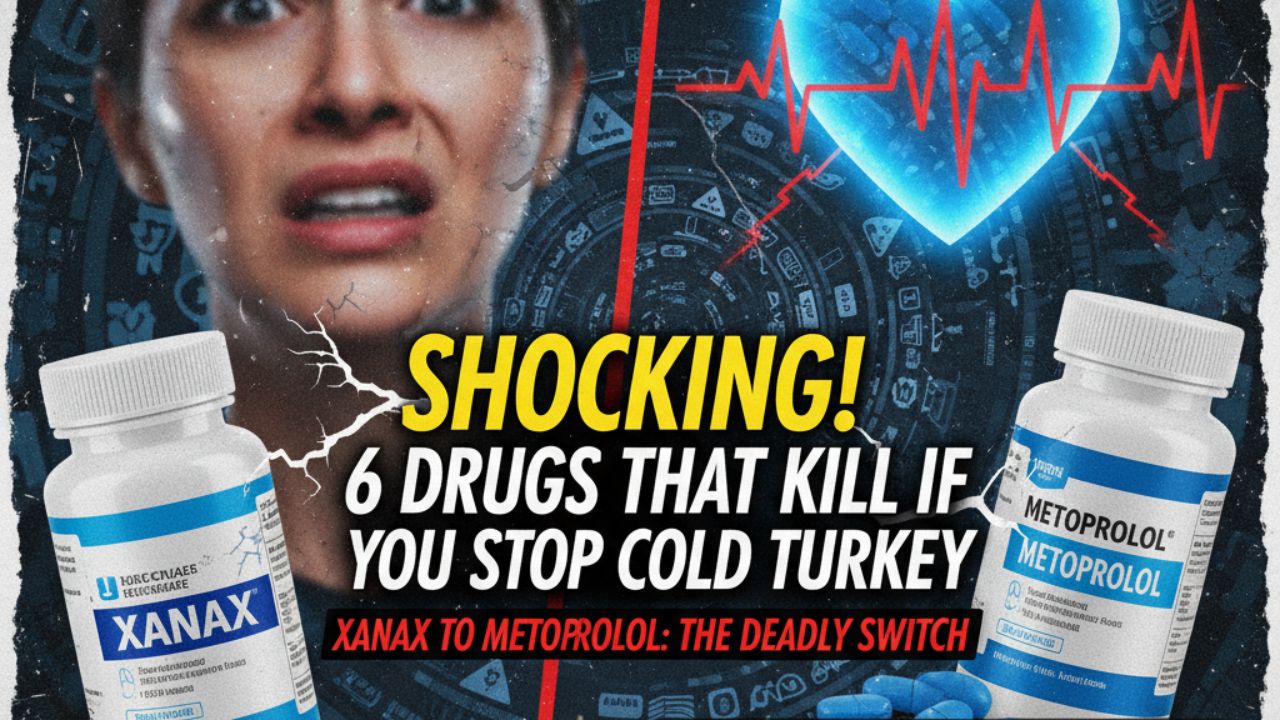✅ Case Studies That Could Haunt You
1. Beta-Blocker Withdrawal: Heart Attack & Death
In the classic medical review β-Blocker Withdrawal, authors recount multiple reports of severe angina, ventricular tachycardia, myocardial infarction, and even two cases of death following abrupt cessation of long-term β-blockers. The mechanism is likely a “hyperadrenergic rebound” when sympathetic tone surges after blocking is lifted.
Source: β-Blocker Withdrawal review (SpringerLink)
In addition, a prospective study on heart failure patients who had their β-blocker therapy held showed that in-hospital mortality jumped by a factor of 3.72 (95% CI: 1.51 to 9.14) when β-blockers were withdrawn.
Source: Effects of Beta-Blocker Withdrawal in Acute Decompensated Heart Failure (PMC)
And a clinical cardiology article noted: patients with angina who suddenly stopped β-blockers faced unstable angina and myocardial infarction as documented outcomes.
Source: “Beta-adrenergic blocker withdrawal” (American Journal of Cardiology) (AJC Online)
These reports show that stopping Metoprolol (Lopressor, Toprol-XL) or similar agents without tapering can provoke life-threatening cardiac crises.
2. Steroid Withdrawal: Adrenal Crisis & Collapse
Consider a 74-year-old woman who had been taking long-term corticosteroids for an undiagnosed cause of Cushing’s syndrome. When she abruptly stopped, she developed severe fatigue, hypotension, nausea, and signs of adrenal insufficiency. She required emergency treatment with hydrocortisone to survive.
Source: A Case Report of Steroid Withdrawal Syndrome (PMC) (PMC)
Another paper, Steroid Withdrawal Syndrome – A Masquerading Entity, discusses two patients who were misdiagnosed initially (brain infection, metabolic encephalopathy), but in fact were suffering glucocorticoid deficiency after sudden cessation. One presented with fever, altered consciousness, and electrolyte derangements.
Source: Steroid Withdrawal Syndrome — A Masquerading Entity (Lippincott Journals)
Medical reviews and endocrinology articles confirm that rapid discontinuation of exogenous glucocorticoids can precipitate an adrenal crisis—a life-threatening condition characterized by hypotension, shock, and organ failure.
Source: Adrenal Crisis: Practice Essentials (Medscape) (Medscape)
Source: Glucocorticoid Withdrawal — An Overview (PMC) (PMC)
Source: Glucocorticoid-induced adrenal insufficiency (Cleveland Clinic Journal) (Cleveland Clinic Journal of Medicine)
Even in the field of inhaled corticosteroids, abrupt withdrawal has been implicated in adrenal crisis among susceptible patients.
Source: Inhaled Corticosteroids and Secondary Adrenal Insufficiency (The Open Respiratory Medicine Journal)
Thus, if someone stops Prednisone (Deltasone) or dexamethasone cold turkey, their own adrenal axis may be unable to generate cortisol fast enough to keep life going.
🔥 Why These Stories Matter
These cases aren’t just medical curiosities. They are proof:
- Even routine or “safe” medications like β-blockers or steroids carry hidden dependence risks.
- The body’s compensatory systems (autonomic, adrenal, neurotransmitter) adapt to these drugs; when removed abruptly, collapse or overreaction can follow.
- Doctors and patients often underestimate how fast damage can occur.
🧩 Concrete Names, Real Dangers
Here are medicines that, per clinical literature and case reports, are known to produce severe, sometimes fatal effects if stopped too quickly:
- Metoprolol (Lopressor, Toprol-XL) — sudden withdrawal may trigger angina, myocardial infarction, arrhythmias, death.
- Clonidine (Catapres, Kapvay) — rebound hypertension and stroke risk.
- Prednisone / Dexamethasone — adrenal crisis, hypotension, shock.
- Alprazolam (Xanax) / Lorazepam (Ativan) — seizures, delirium, death in extreme withdrawal (though case reports are less commonly published in open-access).
- Paroxetine (Paxil) / Venlafaxine (Effexor XR) — “discontinuation syndrome” with risk for suicidal ideation or relapse.
- Phenytoin (Dilantin) / Levetiracetam (Keppra) — sudden stop can precipitate status epilepticus (though detailed open-access case reports are rarer).
✅ What You Must Do (Don’t Gamble)
- Never stop major medications suddenly (particularly those above) without a clinician’s plan.
- Insist on a taper schedule—perhaps over weeks or months—to allow your body to recalibrate.
- Monitor for warning signs — e.g. chest pain, palpitations, dizziness, confusion, fever, nausea, seizure activity.
- Inform all your providers about your polyprescriptions — especially before surgery or acute illness.
- You and your loved ones should have a crisis plan, including emergency contacts, medical alert details, and instructions not to discontinue medications on your own.
‼️ Final Warning (Your Life Is in the Balance)
These aren’t hypothetical risks — people did die because someone thought it was “safe” to stop a medicine when they felt okay.
If you or a loved one is taking Metoprolol, Clonidine, Prednisone, Xanax, Paxil, Keppra, or similar — don’t stop without medical supervision.
Call your doctor today and demand a safe tapering plan in writing.
Share this article — it might prevent a fatal mistake.
Enjoying this story? Stay connected:
Follow Jim DeLillo on NewsBreak for more local stories, health updates, and Wisconsin news.
Download the NewsBreak App to get updates delivered straight to your phone.
Write for NewsBreak — share your own stories and earn.
What class of drug would you rather me build a similar “danger” article around — psychiatric, cardiac, or endocrine?








Leave a Reply